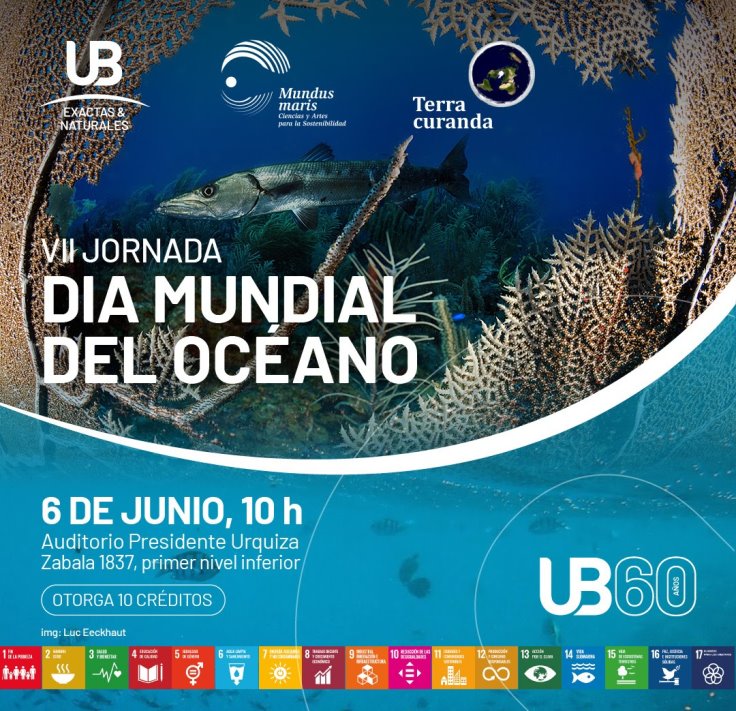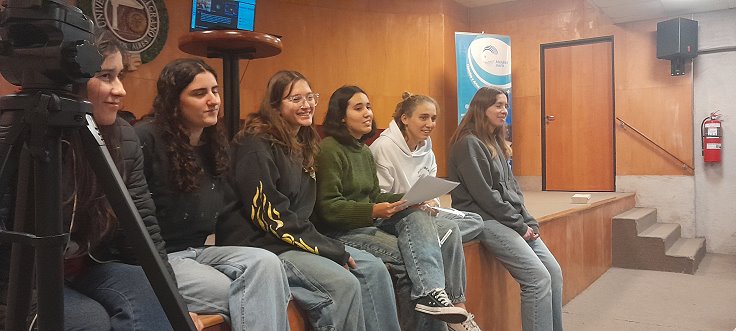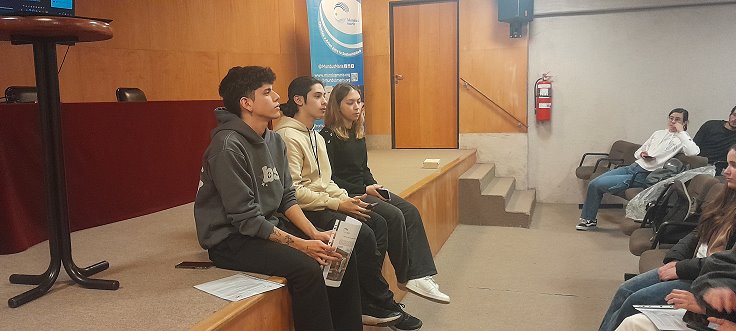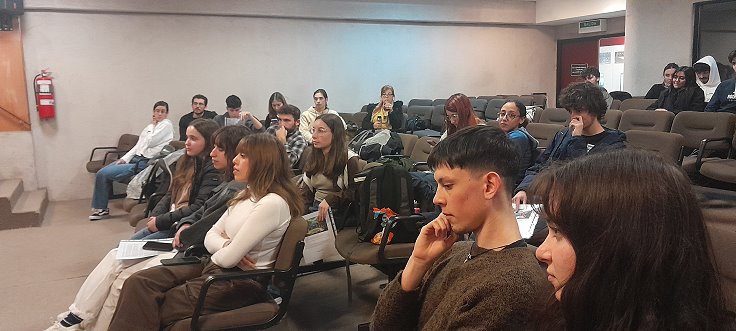Celebrating World Ocean Day in Buenos Aires, Argentina
During the World Ocean Day 2024 event at the University of Belgrano, Buenos Aires, Argentina, on 6 June 2024 several noteworthy presentations and activities took place. Dr. AyoJesutomi Abiodun-Solanke from the Federal College of Fisheries and Marine Technology in Lagos, Nigeria, presented her research on the use of natural preservatives derived from underutilized plant materials to preserve fish in Nigeria. Her study focuses on the effectiveness and safety of these natural preservatives, improving storage quality and reducing dependency on synthetic preservatives. She also highlighted how these practices contribute to ocean sustainability, reducing pollution and supporting artisanal fishing communities.
Engineer Gustavo Aldegani, a researcher at the University of Belgrano, discussed the relationship between carbon footprint and computing, including artificial intelligence. He highlighted how these current resources contribute to CO2 emissions, exacerbating global warming and ocean pollution. He proposed strategies to mitigate this impact, including energy efficiency, the adoption of renewable energies, the circular economy, and carbon footprint compensation, emphasizing the importance of these measures to protect both people and the environment.

Dr. Patricia Morales, a professor at the University of Leuven in Belgium and Vice President of Mundus maris, emphasized the importance of integrating human rights into ocean protection, using the 2030 Agenda and its 17 Sustainable Development Goals as a framework. She underlined how the ocean is crucial for poverty reduction, food security, human health, gender equality, and environmental sustainability. She concluded that international cooperation and the explicit inclusion of human rights are essential for the success of the UN Decade of Ocean Science.
Ms. Awa Djigal, an artisanal fish processor in Senegal and Secretary of the Network of Women in Artisanal Fisheries in Senegal (REFEPAS), highlighted the importance of women in the post-harvest value chain in fisheries. She pointed out the challenges they face, such as insufficient recognition and difficulties in accessing resources and financing. She proposed solutions such as strengthening agroecological diversification and improving governance. Awa concluded with a call to protect the ocean, a source of life, both individually and collectively.

The conference-style presentations were followed by a role-playing game with biology students. It was developed by Mundus maris and adapted at the University of Belgrano for the context of the event in Argentina. The aim is to engage young adults in searching to understand challenges and finding solutions for the sustainable management of marine resources. One key element is the creation of a marine protected area (MPA) as mandated by the Global Biodiversity Framework (GBF) agreed internationally in December 2022 in order to stop mass species extinctions, particularly in the sea.
The original of the role play had been tested with almost all 11 proposed characters representing parties affected by the establishment of a new marine protected area in order to contribute to the implementation of the GBF. The challenge was to make the protected area work in the face of at least partially conflicting interests. In the configuration for the World Ocean Day event, junior (3rd year) biology students led the interpreted roles with the participation of sophomores (2nd year) and freshmen (1st year) students. They were divided into six groups, each tasked with adopting the role of one of the stakeholder groups considered essential for making an MPA work. These groups constituted representatives of a public authority, natural scientists, artisanal fishers, industrial fishers, wind farm owners, and nature conservation NGOs. Each group was first shown an explanatory video produced with AI based on a short introductory text about their character, and provided with printed materials to delve deeper into their respective roles. They then had 20 minutes to develop the arguments of their stakeholder group before engaging in an exchange with other stakeholders or rights holders. Marcelo Morales Yokobori, as moderator, supported by senior biology students, then initiated the overall exchange. Although the discussion was not arranged as an open circle conversation, where participants sit in a circle to encourage equal participation, it began with presentations of the arguments developed within each 'in-group' and evolved into a dynamic discussion that also included direct exchanges between stakeholder roles.

In the context of this role play enacted during the event, the government representatives proposed strict regulations and the creation of an offshore wind farm, industrial fishers requested support for sustainable methods, and NGOs and biologists recommended the creation of marine protected areas and sustainable fishing practices. Artisanal fishers expressed concerns about industrial fishing and suggested promoting tourism and sustainable practices. The activity concluded by emphasizing the need for collaboration among all actors to achieve the effective protection of marine biodiversity with healthy and productive ecosystems. The summary of results is available here.

While not confronting the other stakeholders in direct exchange the in-group discussions still rose a lot of emotions as students tried to slip into the shoes of their characters and got heated up in the effort to marshal the best arguments. While the time was too short to enable a critical debriefing it is still believed to have generated some learning process beyond assimilating some facts. The entire exercise was certain even interesting for online event participants, some of whom enquired afterwards about the possibility to use the role play in the effort to engage with stakeholders for a concrete MPA establishment elsewhere.
Mundus maris is happy to stimulate creative adaptations of the role play to local conditions so long as the principal objective of effective biodiversity and ocean protection remains at the centre of the application.








